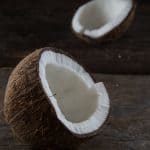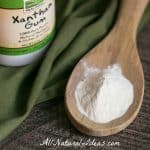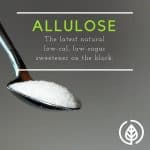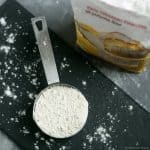Are you aware of the stevia benefits beyond sweetening foods? This healthy natural sweetener may reduce your health risk for some common ailments.
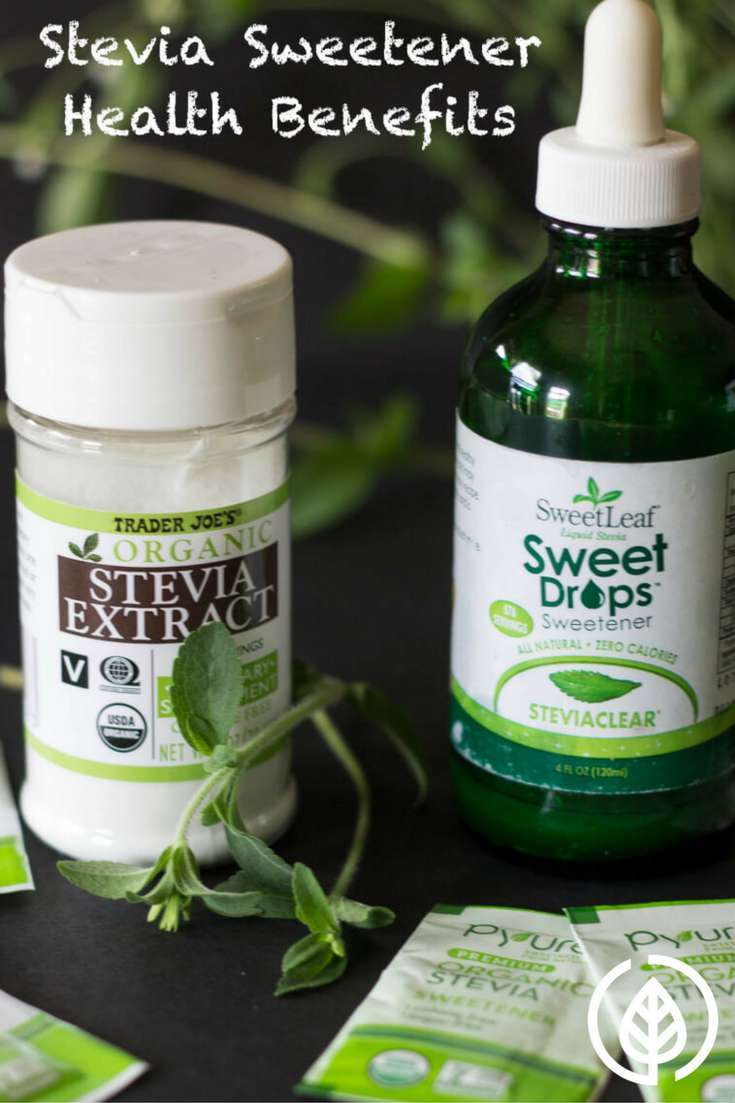
What is stevia?
Stevia is a plant native to Latin America that has been used by the Guarani tribes of Brazil and Paraguay for centuries. The Guarani traditionally use the sweet stevia leaves to sweeten yerba mate tea.
With the popularity of stevia as a sweetener, the stevia rebaudiana plant is now grown worldwide. You may even be able to find it in your local garden store.
The sweetness in stevia leaves comes from steviol glycosides, primarily stevioside and rebaudioside. Rebaudioside is the more desirable glycoside as it doesn’t have the unpleasant bitter taste that is associated with stevioside.
Rebaudioside is about 350-450 times as sweet as sugar and stevioside is about 250-300 as sweet as sugar. Highly processed versions of stevia like Truvia and PureVia use only the rebaudioside. I recommend sticking to the more natural stevia brands that aren’t as highly processed.
What are the stevia benefits?
With the popularity of stevia as a natural sweetener, most people have discovered that it’s an excellent sugar replacement. It’s commonly used by those with diabetes or those following a sugar free diet for other reasons.
One of the stevia benefits is that it may reduce your risk for diabetes with regular consumption. This is because it prevents insulin and blood sugar spikes.
The results of one study showed that humans who consumed stevia had lower post meal sugar and insulin levels than those who consumed aspartame. This study also found that those who consumed stevia didn’t have the usual sugar cravings associated with using other sugar substitutes.
A few other studies have supported the conclusion that another one of the stevia benefits is that it can increase insulin sensitivity. One study showed that stevia can stimulate insulin secretion from isolated mouse islets, the other study concluded that stevioside acts directly on pancreatic beta cells to secrete insulin.
Evidence gathered from another animal study showed that stevioside decreased oxidized LDL cholesterol, indicating that it might be helpful in preventing heart disease. Another stevia study performed on mice had results that showed stevia has anti-cancer, anti-inflammatory, and diuretic effects as well as evidence that stevia stimulates the immune system.
The positive health effects shown in these various animal studies still need to be proven in humans. But, the studies do prove that stevia is a powerful herb that has health benefits beyond being a natural sugar alternative.
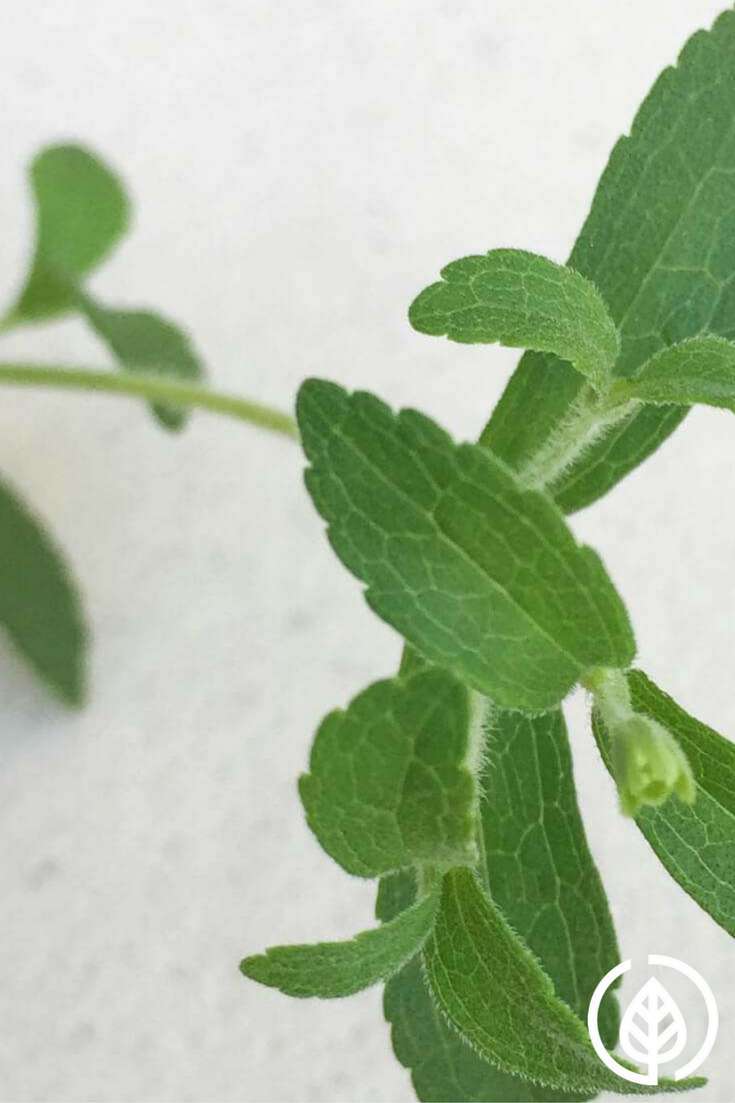
How is stevia used?
Are you lucky enough to have your own stevia plant? If so, the fresh leaves are an excellent addition to fruit salads and teas. Fresh leaves can also be used in baked goods like bread.
You can also dry the leaves and powder them for use as a sugar substitute. Stevia liquid extract sweetener can be made at home with either fresh or dried leaves as well.
The majority of people will consume stevia by adding a commercially prepared stevia sweetener to their own recipes or buying products already sweetened with stevia. In your grocery store, you will typically find stevia sweetener in the baking aisle with the sugar alternatives. It may also be found with other natural sweeteners in the health food section.
Stevia sweeteners come in three main varieties. There is the concentrated white powder extract, a liquid concentrate extract, and stevia blended with fillers.
Some places sell stevia in tablet form and in flavored stevia concentrated liquids. If you are a diabetic or following a low carb diet, you will want to be cautious of any filler ingredients used in stevia blends.
Some of the fillers, such as maltodextrin, are fairly high on the glycemic index. Be sure to check the nutrition label for carbohydrates. Pure stevia has zero carbs, it’s the fillers that add carbohydrates.
What kind of stevia sweetener should I buy?
It’s best to try a variety of stevia products to determine which ones work best for you. Are you looking for the most natural stevia and don’t have your own plant? The green stevia powder is what I recommend.
If taste is more important to you, definitely go for a stevia blended with erythritol. Erythritol is a sugar alcohol that has almost no affect on blood sugar. So, it’s the safest for diabetics and those who follow a low carb way of eating.
Are you a bit in between in that you don’t like the grassy taste of the green stevia and you don’t want the added carbs of fillers? If so, the concentrated powder or liquid concentrate is the stevia choice for you!
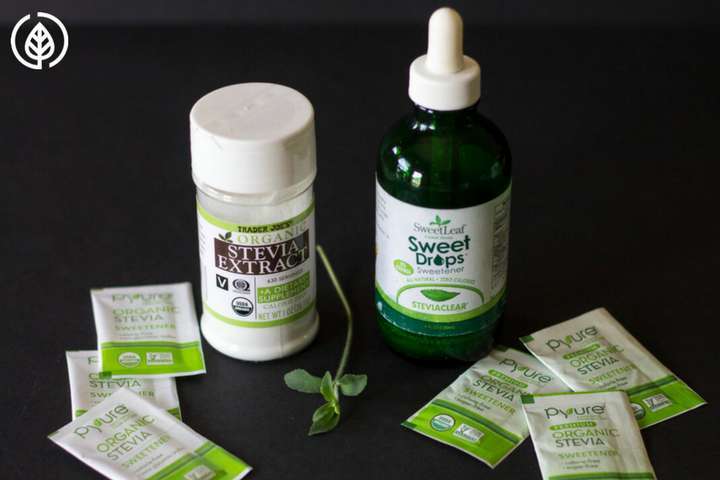
Disclaimer: The information presented is not intended for the treatment or prevention of disease, nor as a substitute for medical treatment, nor as an alternative to medical advice. Use of the recommendations is at the choice and risk of the reader.

